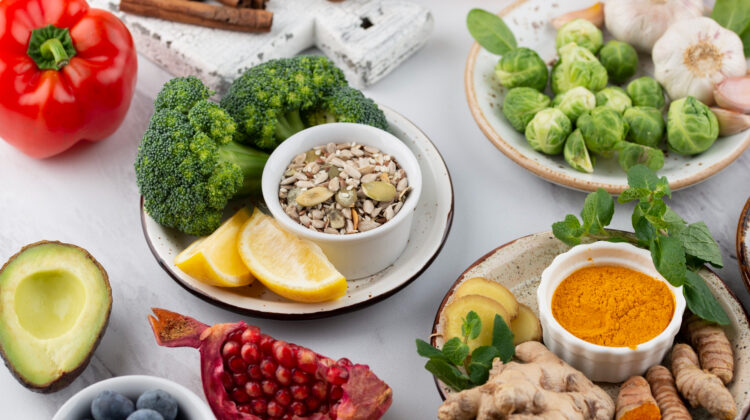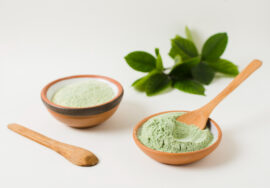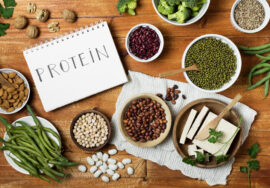
Why Anti-Inflammatory Diets Are 2025’s Nutrition Game Changer
Introduction: The Rise of Anti-Inflammatory Eating in 2025
In 2025, the conversation around wellness has shifted from quick-fix diets to long-term, science-backed approaches that address the root causes of chronic health issues. At the center of this revolution is the anti-inflammatory diet—a lifestyle choice designed to reduce chronic inflammation, support optimal health, and prevent disease. With more people embracing whole foods, plant-based nutrients, and targeted nutritional & supplements, this dietary trend is redefining the way we think about food as medicine.
Understanding Inflammation: Friend or Foe?
Inflammation is the body’s natural defense mechanism, essential for healing injuries and fighting infections. However, chronic inflammation—triggered by poor diet, stress, and environmental toxins—can silently damage tissues and organs over time.
Research has linked chronic inflammation to a range of serious health problems, including:
- Heart disease
- Type 2 diabetes
- Autoimmune disorders
- Arthritis
- Certain cancers
This is where anti-inflammatory diets come into play, offering a nutritional blueprint to keep inflammation under control.
What Is an Anti-Inflammatory Diet?
An anti-inflammatory diet focuses on nutrient-rich, unprocessed foods that provide antioxidants, phytonutrients, and healthy fats. It’s less about strict calorie counting and more about food quality.
Core principles include:
- Prioritizing fruits and vegetables high in antioxidants
- Choosing whole grains over refined carbs
- Incorporating healthy fats like omega-3s from fish, nuts, and seeds
- Using herbs and spices like turmeric and ginger for their anti-inflammatory compounds
- Avoiding processed sugars, trans fats, and refined oils
Why 2025 Is the Year of Anti-Inflammatory Nutrition
Several factors have made anti-inflammatory diets a major talking point in 2025:
- Post-Pandemic Health Awareness
People are now more proactive about preventing illness and boosting immunity. - Scientific Validation
Clinical studies continue to confirm that anti-inflammatory eating can help manage and even reverse certain chronic conditions. - Integration with Functional Medicine
Healthcare providers increasingly recommend anti-inflammatory nutrition alongside nutritional & supplements for a holistic health approach. - Accessibility
With more recipes, meal plans, and supplement options available online, it’s easier than ever to follow this diet.
Key Foods for Fighting Inflammation
1. Fatty Fish
Salmon, mackerel, and sardines are rich in omega-3 fatty acids, which help regulate the body’s inflammatory response.
2. Leafy Greens
Spinach, kale, and Swiss chard are loaded with antioxidants like vitamin C and beta-carotene.
3. Berries
Blueberries, strawberries, and blackberries contain anthocyanins, potent plant compounds that combat inflammation.
4. Nuts and Seeds
Walnuts, chia seeds, and flaxseeds provide healthy fats and micronutrients that support heart health.
5. Spices
Turmeric contains curcumin, while ginger has gingerols—both well-known for their anti-inflammatory effects.
The Role of Nutritional & Supplements in Anti-Inflammatory Diets
While whole foods are the foundation of an anti-inflammatory lifestyle, nutritional & supplements can bridge the gap between dietary intake and optimal nutrient levels.
Popular supplements for inflammation support include:
- Omega-3 fish oil: Enhances anti-inflammatory response
- Turmeric/curcumin capsules: Concentrated doses for joint and tissue health
- Vitamin D: Supports immune regulation and reduces inflammatory markers
- Probiotics: Improve gut health, which plays a role in inflammation control
- Magnesium: Helps regulate muscle and nerve function while lowering inflammation
For affiliate marketers in the health niche, this opens up opportunities to recommend high-quality supplement brands alongside dietary advice.
Health Benefits Backed by Science
Following an anti-inflammatory diet—supported by targeted supplements—can bring multiple benefits:
- Reduced Joint Pain: Especially beneficial for those with arthritis or other inflammatory joint conditions.
- Improved Heart Health: Lower cholesterol levels and reduced arterial inflammation.
- Better Blood Sugar Control: Stabilizes insulin response, helping prevent type 2 diabetes.
- Enhanced Cognitive Function: May lower the risk of neurodegenerative diseases.
- Stronger Immunity: Supports the body’s defense system against infections.
Tips for Transitioning to an Anti-Inflammatory Lifestyle
- Start with Small Changes
Replace refined carbs with whole grains, and swap processed snacks for nuts or fruit. - Experiment with Herbs and Spices
Add turmeric, ginger, and garlic to your meals for extra anti-inflammatory power. - Plan Balanced Meals
Include lean proteins, colorful vegetables, and healthy fats in every meal. - Incorporate Quality Supplements
Choose trusted brands with third-party testing to ensure purity and potency. - Stay Consistent
Long-term health improvements come from sustained changes, not short-term fixes.
Affiliate Marketing Angle: Helping Readers Make Informed Choices
As a health and wellbeing affiliate website, you can guide readers toward trusted nutritional & supplements that complement an anti-inflammatory diet. This could include:
- Supplement reviews and buying guides
- Discount offers from reputable brands
- Meal plans with product recommendations
- Video demonstrations of recipes and supplement usage
This not only adds value to your content but also positions your website as a trusted source for health advice.
Conclusion: Your Health, Your Choice in 2025
The anti-inflammatory diet isn’t a passing fad—it’s a lifestyle backed by science and embraced by health-conscious individuals worldwide. With the right combination of whole foods, mindful eating, and targeted nutritional & supplements, you can reduce your risk of chronic disease, boost energy, and improve your quality of life.
In 2025, making anti-inflammatory nutrition a priority is more than just a trend—it’s a game-changing decision for your long-term wellbeing.







